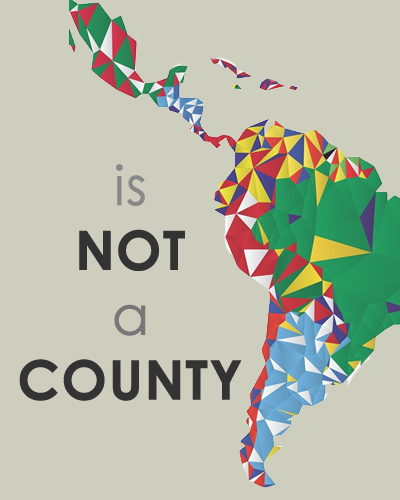 As market researchers it’s part of our job to learn about people – to understand, through interaction, surveys, focus groups etc, what they like and dislike, what they need and what they believe. However, at a recent presentation I gave for the ICG, a membership group of independent, expert market researchers, I explained how, in Latin America and Brazil, learning about the local people and their culture must be the starting point before any market research project even begins.
As market researchers it’s part of our job to learn about people – to understand, through interaction, surveys, focus groups etc, what they like and dislike, what they need and what they believe. However, at a recent presentation I gave for the ICG, a membership group of independent, expert market researchers, I explained how, in Latin America and Brazil, learning about the local people and their culture must be the starting point before any market research project even begins.
Latin America is not a Country
One of the issues potentially affecting market research projects in Latin America is the common view that Latin America is one country. But each country in Latin America is different, with a different culture and a different way of viewing the world. Conducting a project in exactly the same way in each country, using the same methodology or the same questioning techniques, is not going to work. Your results will be unreliable and worthless.
Brazilians love for rankings
A prime example. Brazilians particularly love ranking things and as market researchers that will affect your prompts, annexes and the quality of material collected during the interview. In the UK, people tend to identify things with letters – so prompts usually follow the A, B, C format. In Brazil, people respond better to classification or numbers. Read anything about Brazil and you will see Brazilians describing themselves as the first on this, the sixth on that, the 10th here, the 15th there, and that is how they assess the world. When showing props or any annex in a research interview with Brazilian respondents, they will still make reference to first, second, third etc even if you insist on using codes with them. Transcription and analysis then becomes incredibly complicated and confusing. How much better to work in the way that suits local behaviour and culture in the first place!
Adapt to the local culture to get genuine insight
In terms of how cultural differences may affect specific sectors, let’s use the automotive industry as an example. In Brazil, a quick reaction whilst driving is essential. In the large cities traffic is so intense that drivers leave very little space between themselves and the car ahead, in order to prevent another driver pulling in front of them. Add to this the unofficial motorbike ‘corridors’ and the overall experience is noisy, hectic and at times dangerous. In Rio de Janeiro, taxi drivers even watch the football or their favourite TV programme on their SatNavs whilst driving! As a market researcher, if you don’t understand how different things are and remain focused on conducting the same automotive research project in exactly the same way as the one you carried out in the UK, your results are going to provide little genuine insight. It’s our job as market researchers to understand and adapt to local culture, rather than try to impose our own way of doing things, which often results in a lot of wasted of time. Which leads me nicely onto one more thing…
Time flexibility
You’ve no doubt heard that Latin Americans generally take life at a slower pace than in the UK. Time keeping is more flexible – you will need to allow enough time to accommodate this. It is quite common for respondents to arrive late to focus groups because they have been watching the football or a soap opera on TV!
Iris Griffiths
Across Research
